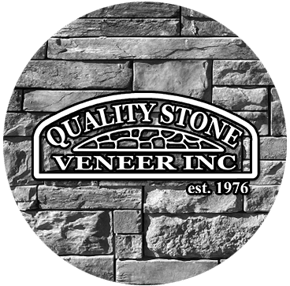The choice of the proper stone supply is key to the success of any building or garden project. In turn, the stone's quality influences not only the project's aesthetics but also its durability and value. Whether you're a homeowner, contractor, or architect, selecting the ideal stone supplies requires careful consideration.
Why Stone Supply Matters
Stone is one of the most efficient and resilient construction/design materials. Ultimately, seeking consistent stone sources when creating an interior feature, garden path, or building facade will have significant implications for the project's long-term viability and visual identity. Stones of low quality can cause cracking, discoloration, or structural degradation with time.
Key Advantages of Using Quality Stone
- Aesthetic Appeal: Stones like granite, limestone, and marble add timeless elegance.
- Durability: Properly sourced stone withstands wear and tear for decades.
- Versatility: Stone is useful for flooring, walls, landscaping, and ornamentation.
- Eco-Friendly: Natural stone is a renewable material that can be frequently reused or recycled.
Steps to Choose the Best Stone Supply
Here's a guide to help you choose the best stone supply for your project:
Define Your Project Requirements
- Determine the purpose of the stone: Is it for exterior cladding, landscaping, interior flooring, or another application?
- Consider the project's style: Will this stone work well with a modern, traditional, rustic, or contemporary style?
- Assess the site conditions: Will the stone be exposed to precipitation, moisture, and/or heavy traffic?
Explore Different Types of Stone
- Natural Stone: Options include granite, marble, limestone, sandstone, and travertine. Each type possesses unique properties in color, texture, and robustness.
- Manufactured Stone: This soft material has the same visual appearance as natural stone with greater reproducibility in uniformity and, typically, lower cost.
Evaluate Stone Quality
- Inspect for imperfections: Identify cracks, chips, and variations in form, color, and texture.
- Assess durability: Choose materials that can withstand the anticipated wear of the work.
- Consider the stone's finish: For example, polished, honed, flamed, and tumbled options are available, with varying aesthetics for each form.
Find a Reputable Stone Supplier
- Research local options: Locate rock suppliers with a solid history and a comprehensive product catalog.
- Read online reviews: See what other customers say about their experience using stone supplies and contractors.
- Visit a showroom: The stones are inspected to better understand their color, surface, and, in a more general sense, quality "in the flesh."
Work with Experienced Professionals
- Consult with a stone expert: They offer many suggestions for choosing the appropriate stone for your project and discuss the various options available.
- Hire qualified installers: Proper installation is crucial for ensuring the longevity and beauty of your stonework.
Consider Budget and Sustainability
- Set a realistic budget: Specify the maximum amount of money you will spend on stone materials installations.
- Choose sustainable options: Opt for locally sourced or recycled stones whenever possible.
Request Samples
- Obtain samples of different stones: This also allows you to check how they are shown in your studio and whether they will complement those that you already have in place.
Get Multiple Quotes
- Compare prices and services: Securing quotes from several reputable stone suppliers is the best way to ensure you're receiving value for your investment.
- Choose a Supplier That Offers Excellent Customer Service: Select a supplier that is responsive to your needs and responds promptly to any problems.
- Build a Strong Relationship with Your Supplier: Communicate openly and honestly throughout the project.
Adhering to the above recommendation makes it possible with absolute certainty to perform a harmonic selection of the material for the project supply, getting a beautiful and permanent outcome.
The Importance of Choosing the Right Stone for Lifelong Value

Choosing the most appropriate stone supply is not only related to looks but also a decision of a long-term nature for your property. A systems paradigm, which considers endurance, maintenance requirements, and design compatibility of the system, yields a relative merit of a system. A good stone will only further enhance your home's utility and subsequent marketable value.
Key Considerations for Long-Term Value
- Durability: Stones of good quality, such as granite or sandstone, are typical of weatherability and attrition resistance. Investing in durable materials ensures your project remains intact for years, reducing repair and replacement costs.
- Maintenance Needs: Existing stones require some degree of repair (e.g., sealing or polishing) to extend their aesthetic and functional quality for longer. Talk with your natural stone vendor about maintenance requirements to choose a stone that suits your lifestyle and budget.
- Design Flexibility: Unrestricted stones (e.g., limestone or slate) may be used for many applications, from interior floor coverings to exterior landscaping. Choosing soft materials can allow for homogeneity in design across the project.
- Environmental Impact: Select eco-friendly substitutes by buying from environmentally conscious stone supply companies that consider sustainable sourcing integral. This minimizes your carbon footprint and makes sense, given the current environmental standards.
Why It Matters
Choosing the right stone is not just about the immediate esthetic consequence of your project. It influences durability, cost-effectiveness, and overall satisfaction. Collaborating with experienced contractors and stone suppliers, such as Quality Stone Veneer, can provide fantastic value for your investment.
A carefully considered selection process leads to a complete, durable project in functionality and appearance and is a good decision for any homeowner or contractor.
Tips for Ensuring a Successful Project
1. Choosing the Right Stone
- Wherever possible, preference should be given to stones recovered domestically to reduce transportation costs and environmental impact.
- Match the stone type to the climate. For example, frost-resistant stones are ideal for cold regions.
- Always request samples before finalizing your order.
2. Working with Contractors
- The key to the excellent quality of your construction project is the use of a quality professional contractor and heavily trusted stone sources. Ensure your contractor is experienced in working with your chosen stone.
- Learn how to find the right contractors for stone supply projects.
- The contractor’s stone supply is no less important than choosing the stone itself. Credible contractors ensure your materials are stored, fitted, and maintained properly. The following are the steps for selecting the right contractors for a project.
3. Look for Experience in Stone Projects
- Professionals who supply stones have a better understanding of their special characteristics. They are familiar with the importance of the accuracy of the instruments used to cut, shape, and embed stones to achieve a perfect surface morphology.
4. Check References and Reviews
- Don't be shy to ask for references or to look at their previous career online. Feedback from clients who have previously worked with the company can offer much information about the company's dependability, skill, and ability to do work well.
5. Assess Their Knowledge of Stone Materials
- A qualified contractor needs adequate knowledge of different stone types, their applications, and their maintenance. This ensures that they can guide you to make the best choices and, subsequently, avoid potential errors in installation.
6. Prioritize Licensed and Insured Professionals
- The benefit of getting your project done by licensed and insured contractors is that you have peace of mind that it is the best it can be. It also covers the risks of legal liability due to accidents or damage.
7. Choose a Contractor with Access to Quality Stone Supplies
- The better constructors have strong relationships with the top players in natural stone, such as Quality Stone Veneer. This synergy guarantees a high-quality level of materials to better suit your design and robustness requirements.
Quality Stone Veneer (QSV) is one of the leading producers of stone veneer in the eastern part of the United States. With more than 500 years of industry experience, we offer a broad range of natural and piled rock products to meet the needs and specifications of private homeowners and contractors.
Contact us now to learn more about our products and services.


